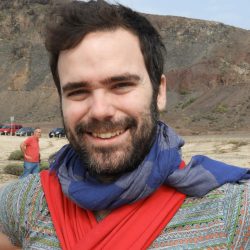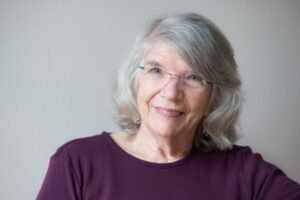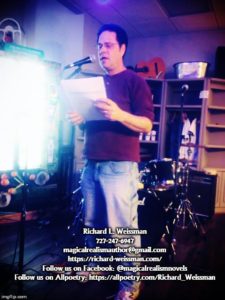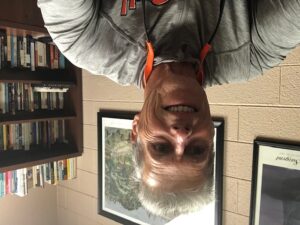FIRST TERRITORY
child eats crying
child cries eating
in animal concert
Blanca Varela
Lips that you have not used to kiss
little feet you haven't walked on yet
eyes which see just a foot from your face
hands you still don't know are yours
only
crying, hunger and sleep
and some furtive smile
but now comes life
beautiful Guille,
and kisses will come and your steps
and your eyes will see to the end of the horizon
you will know your hands, and how to handle them
but don't forget, my child,
that crying, hunger, sleep
were your first territory.
PRIMER TERRITORIO
niño come llorando
llora comiendo niño
en animal concierto
Blanca Varela
Labios que no has usado para besar,
pequeños pies con los que no has caminado todavía,
ojos con los que ves a solo un palmo de tu rostro,
manos que aún no sabes que son tuyas;
apenas solo
llanto, y hambre, y sueño,
y alguna sonrisa furtiva;
pero ahora llega la vida,
hermoso Guille,
y los besos vendrán, y tus pasos,
y esos ojos verán al final del horizonte,
y sabrás de tus manos, y sabrás manejarlas,
pero no olvides, mi niño,
que llanto, hambre y sueño
fueron tu primer territorio.
[Scars will come, my son...]
Scars will come, my son
and they will mark your body
but do not let them scare you because they will be
your private dialogue with the world
a way to know you are alive
full of past and full of present.
[
Sobrevendrán cicatrices, hijo...]
Sobrevendrán cicatrices, hijo,
y marcarán tu cuerpo,
pero que no te asusten pues serán
tu diálogo privado con el mundo,
una forma de saberte vivo
colmado de pasado y de presente.
[The many things you discover every day...]
The many things you discover every day.
How to lean out with your clean eyes
to this world full of sorrows,
how to lean out and not soil everything
with prejudices, fixations and miseries,
how will we do it without you telling us
which path to take, which way,
without us telling you
“This way yes, this way no, eat slowly,
try not to stain your vest,
shut the door, brush your teeth...”.
[Cuántas cosas descubres cada día...]
Cuántas cosas descubres cada día.
Cómo asomarnos con tus ojos limpios
a este mundo cargado de pesares,
cómo asomarse y no ensuciarlo todo
de prejuicios, esquemas y miserias,
cómo lo haremos sin que tú nos digas
qué vereda tomar, por qué camino,
y no nosotros los que te digamos:
“Por aquí sí, por aquí no, come despacio,
intenta no ensuciar tu camiseta,
cierra la puerta, lávate los dientes...”.
NOT BEFORE
Wake up when
the light lets you
look at your toys
NO ANTES
Despierta cuando
la luz ya te permita
ver tus juguetes.
[In addition to paying our pensions...]
In addition to paying our pensions,
it is expected of you, children,
(at least by poets)
a word that illuminates the world.
Like innocent little prophets
you sleep peacefully
you don't know yet
our secret assignment.
[Además de pagar nuestras pensiones...]
Además de pagar nuestras pensiones,
de vosotros se espera, hijos,
(al menos los poetas),
una palabra que ilumine el mundo.
Como pequeños profetas inocentes,
dormís tranquilos,
no conocéis aún
nuestra secreta encomienda.
[How I wish my errors were of value to you...]
How I wish my errors were of value to you
a sort of hereditary apprenticeship
—I´ve a whole string of these to give you—
but only your own errors
with their taste of blood between the lips
will be of some use to you, if at all;
most will be
irreparable and useless, like
a toy forgotten in an attic.
[Ojalá mis errores os valieran...]
Ojalá mis errores os valieran
como un aprendizaje hereditario
—de eso tengo una ristra para daros—,
pero solo vuestros errores,
con su sabor a sangre entre los labios,
os servirán de algo, si es que os sirven;
la mayoría serán
irreparables e inútiles como
un juguete olvidado en un desván.

Javier Gil Martin (Madrid, 1981). With a degree in Spanish Philology from the UAM, he is professionally dedicated to subtitling and literary proofreading and passionately to reading and editing, mainly poetry. He has coordinated, together with good friends, several literary collections. In 2020 he founded the publishing project “Cartonera del escorpión azul” and since 2006 he coordinates the “Versos para el adiós” section of Adiós Cultural magazine. As an author, he has published Poemas de la bancarrota (Ediciones del 4 de agosto, Logroño, 2015), Poemas de la bancarrota y otros poemas (Espacio Hudson, Argentina, 2018), Museo de la intemperie (Ejemplar Único, Alzira, 2020) & Museo de la intemperie [II] (Cartonera Island, Tenerife, 2022). His “Route Signs” is a section of the latter.
Amparo Arróspide (born in Buenos Aires) is an M.Phil. by the University of Salford. As well as poems, short stories and articles on literature and films in anthologies and international magazines, she has published five poetry collections: Presencia en el Misterio, Mosaicos bajo la hiedra, Alucinación en dos actos y algunos poemas, Pañuelos de usar y tirar and En el oído del viento. The latter is part of a trilogy together with Jacuzzi and Hormigas en diaspora, which are in the course of being published. In 2010 she acted as a co-editor of webzine Poetry Life Times, where many of her translations of Spanish poems have appeared, she has translated authors such as Margaret Atwood, Stevie Smith and James Stephens into Spanish, and others such as Guadalupe Grande, Ángel Minaya, Francisca Aguirre, Carmen Crespo, Javier Díaz Gil into English. She takes part in poetry festivals, recently Centro de Poesía José Hierro (Getafe).
Robin Ouzman Hislop is Editor of Poetry Life and Times his publications include All the Babble of the Souk and Cartoon Molecules collected poems and Key of Mist the recently published Tesserae translations from Spanish poets Guadalupe Grande and Carmen Crespo visit Aquillrelle.com/Author Robin Ouzman Hislop about author. See Robin performing his work Performance (University of Leeds) .









